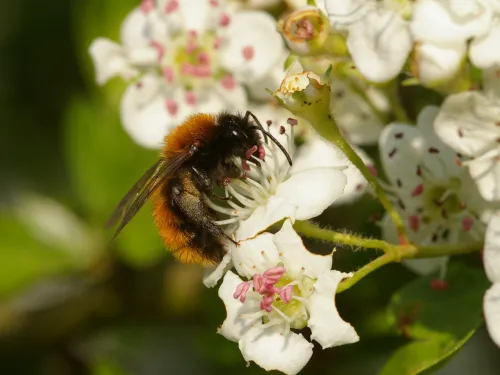
Tawny mining bee
The Tawny mining bee is a furry, gingery bee that can often be seen in parks and gardens during the springtime. Look for a volcano-like mound of earth in the lawn that marks the entrance to its burrow.
Want to learn more about wildlife near you? You're in the right place, search below and discover the nature you can help protect in Kent.

The Tawny mining bee is a furry, gingery bee that can often be seen in parks and gardens during the springtime. Look for a volcano-like mound of earth in the lawn that marks the entrance to its burrow.
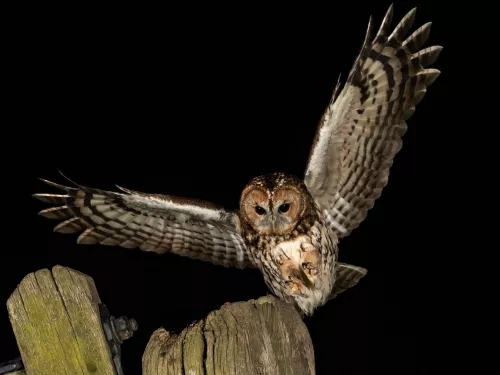
Tawny owls are the familiar brown owls of Britain’s woodlands, parks and gardens. They are known for their ‘too-wit too-woo’ song that can be heard at night-time.
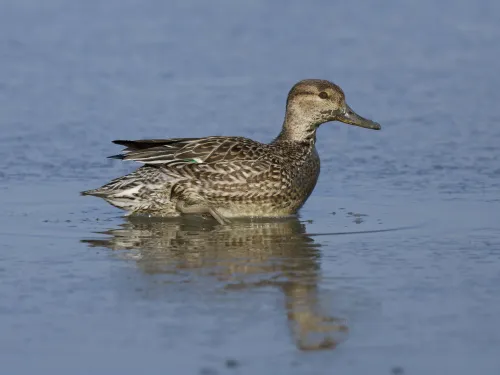
The teal is a pretty, little dabbling duck, which can be easily spotted in winter on reservoirs, gravel pits, and flooded meadows. Watching flocks of this bird wheel through a winter sky is a true delight.
The brown, oval, spiky seed heads of the teasel are a familiar sight in all kinds of habitats, from grassland to waste ground. They are visited by goldfinches and other birds, so make good garden plants.
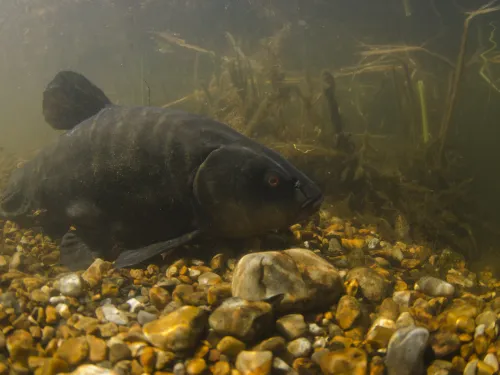
A handsome fish, the tench has olive-green flanks, powerful fins and distinctive red eyes. It can be found in lowland lakes and slow-flowing rivers around the UK.
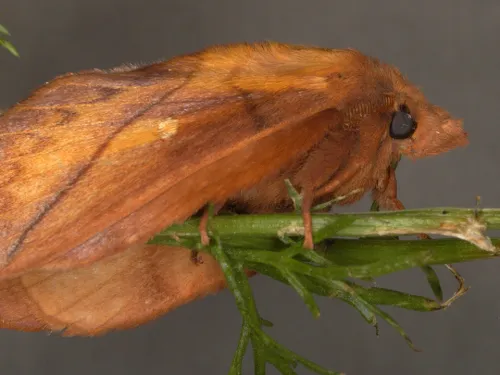
This large, fluffy-looking moth is on the wing in July and August, but you might spot a caterpillar at almost any time of year.
The thick topshell is a common sight on rocky shores in Wales and South West England.
Their empty, delicate pink or yellow shells can often be found washed up on beaches, but the animals themselves live buried in the sand all around the coasts of the UK.
The most commonly encountered ray around the British Isles, it's easy to see where the thornback ray got its name from - just check out the spines on its back!
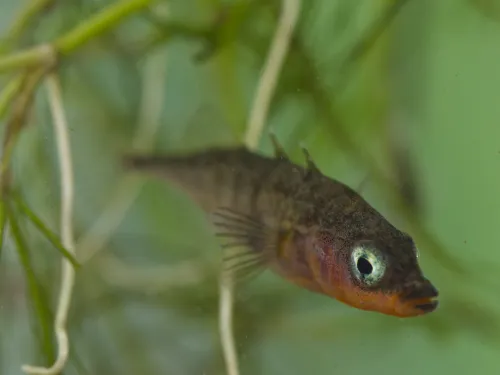
A diminutive but aggressive predator, the three-spined stickleback hunts tadpoles and small fish. It is also known for fiercely protecting its nest of eggs until they hatch. Look for it in ponds, lakes and rivers.
The thresher shark is a migratory species and passes through UK waters in the summer months. If you’re lucky, you might see this magnificent shark jump high out of the water in to the air.
Cushions of clover-like, pink Thrift are a familiar sight of cliffs, shingle beaches and sand dunes around the UK. Also known as 'Cliff Clover', it makes a good garden plant.